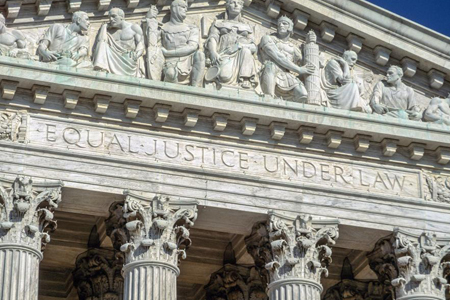What your business needs to know about the federal stimulus bills

In response to the global COVID-19 pandemic, the federal government has signed into law multiple acts designed to assist in relief efforts in the United States. While these acts will help many individuals and companies protect against devastating financial loss, they are not always created in easily accessible language.
To help you navigate, Blanchard, Krasner & French is sharing what you need to know in the weeks ahead to comply with these various stimulus bills. As Congress considers a fourth stimulus bill, we will continue to keep you apprised of what you can employ to protect your assets, your businesses, and your families.
DISCLAIMER: This is not legal advice. We recognize organizations operate in diverse manners. If you need further help understanding how to implement components of these bills directly into your operations, please contact us.
Small Business Administration (SBA) Emergency Loan Programs in Response to COVID-19
1. Paycheck Protection Program Loans
One of the main sections of the Coronavirus Aid, Relief, and Economic Security Act (“CARES Act”) providing relief to small businesses is the Paycheck Protection Program, which contains nearly $350 billion in government-guaranteed loans from private banks. In some cases, these loans are convertible to grants – money that doesn’t need to be repaid. The Paycheck Protection Program is designed to incentivize small business owners to keep employees on payroll and re-hire workers who lost their jobs due to disruptions caused by the COVID-19 pandemic. These loans can cover payroll costs, mortgage and rent payments, and healthcare benefits for employees, including paid sick leave.
These loans can be forgiven when used to maintain payroll through June.
Eligibility
Small businesses, nonprofits, tribal business concerns, and certain veterans’ organizations with fewer than 500 employees are eligible. Additionally, self-employed individuals, gig-economy workers, independent contractors, and sole-proprietors may apply. Applicants must have been in business as of February 15, 2020. For food service businesses, the 500-employee cap is applied on the basis of each physical location.
Loan Amount
The maximum loan amount under the Paycheck Protection Program is 2.5 times the average monthly payroll costs, up to a maximum of $10 million, including salary, wages, tips, sick, family leave, PTO (paid time off), severance payments, group health benefits (including insurance premiums), retirement benefits and state or local taxes. For employees who are paid more than $100,000 annually, compensation in excess of $100,000 is excluded, as pro-rated for the covered period. The loans have a maximum 10-year term and 4% interest rate for any unforgiven portion. No collateral or personal guarantee is required for the loans, and lenders are expected to defer fees, principal and interest for a minimum of six months, but no longer than one year.
Loan Forgiveness
Small businesses should be able to obtain forgiveness for the portion of the loan amounting to the sum of payroll costs, mortgage interest payments, rents and utilities incurred or paid by the borrower during the 8-week period beginning on the loan origination date.
2. Economic Injury Disaster Loans
The CARES Act also expanded eligibility for the SBA’s Economic Injury Disaster Loans (“EIDL”). EIDL’s that are smaller than $200,000 can now be approved without a personal guarantee, and can be approved by the SBA based solely on the applicant’s credit score. Borrowers can additionally receive a $10,000 emergency grant cash advance which can be forgiven if spent on paid leave, maintaining payroll, increases in costs due to supply chain disruption, mortgaged or lease payments, or repaying obligations that cannot be met due to loss in revenue.
Can my business get both loans?
Yes, small businesses can get both a Paycheck Protection Program loan and an EIDL loan so long as they don’t pay for the same expenses.
3. Business Tax Relief
The CARES Act also implemented certain tax changes to assist businesses affected by COVID-19. Many of these modifications are designed to provide critical cash flow and liquidity to businesses during the COVID-19 emergency, including through amending prior tax returns to obtain tax refunds.
Changes to Net Operating Loss Limitations
A significant number of corporate taxpayers are expected to suffer losses in 2020 as a result of the COVID-19 outbreak. The CARES Act amends tax rules regarding use of Net Operating Losses (“NOLs”). For businesses with NOLs in a tax year beginning in 2018, 2019, or 2020, the NOL can now be carried back five years and carried forward indefinitely (current law under the Tax Cuts and Jobs Act [“TCJA”] prohibits carry-back of NOLs and limits carryforwards to 80% of the taxpayer’s income for NOLs incurred in 2018 and after; NOLs arising prior to 2018 generally could be carried back two years and carried forward 20 years). The 80% taxable income limitation on NOL carryforwards is relaxed until 2021, allowing 100% of taxable income to offset the amount of an NOL carryforward until December 31, 2021. Pass-through businesses and sole proprietors may also take advantage of the relaxed NOL limitations.
Employee Retention Payroll Tax Credit
Eligible businesses can get a refundable 50% tax credit on the employer portion of payroll taxes paid up to $10,000 per employee, for the period from March 13, 2020 through December 31, 2020. The amount of qualified wages will depend on the business and its size. A business is eligible for this credit if the employer had operations fully or partially suspended on account of a shut-down order from a governmental authority related to COVID-19, or if gross receipts declined by more than 50% compared to the same quarter in the prior year. The credit is refundable to the extent it exceeds the business’s payroll tax liability.
Payroll Tax Deferral
Businesses and self-employed individuals can defer payments of the employer’s share of Social Security taxes owed for 2020 and pay these taxes over the next two years. Fifty percent must be paid by the end of 2021 and the remaining fifty percent must be paid by the end of 2022. However, if a business has had a Paycheck Protection Program loan forgiven, the ability to defer these taxes will not apply.
Alternative Minimum Tax Accelerated Recovery
The TCJA repealed the corporate alternative minimum tax (“AMT”) but allowed a credit of AMT paid in prior years to be used against a corporation’s normal tax liability for taxable years 2018-2021, and treats 50% of the credit as refundable for taxable years 2018-2020 and 100% as refundable for taxable years beginning in 2021. The CARES Act modifies this provision to allow 100% of the AMT credit to be treated as refundable in tax year 2019. Further, the CARES Act provides taxpayers a special election to take the entire refundable AMT credit amount in 2018 and file a tentative refund claim until December 31, 2020.
Increase in Business Interest Expense Deductions
The TCJA introduced provisions limiting trade or business interest deductions, limiting the amount of deductible business interest expenses to the sum of (1) the taxpayer’s business interest income for the year; (2) 30% of the taxpayer’s adjusted taxable income for the year; and (3) the taxpayer’s floor plan financing interest expense for the year. The CARES Act increases the adjusted taxable income limit from 30% to 50%, for taxable years beginning in 2019 and 2020. For partnerships, the increase is only allowed for the partnership’s taxable year beginning in 2020. This provision is intended to allow businesses to increase liquidity, continue operations, and keep employees on payroll.
Bonus Depreciation for Qualified Improvement Property
The TCJA allows taxpayers to claim bonus depreciation deductions up to 100% for certain types of “qualified property,” including property with a depreciable life of 20 years or less. The TCJA, however, failed to state in the definition of qualified improvement property (“QIP”) that such property (improvements to interiors of nonresidential real property) was assigned a 15-year depreciable life. QIP was thus inadvertently ineligible for bonus depreciation due to a probable drafting error. The CARES Act rectifies this error and assigns a 15-year depreciable life to QIP, making it eligible for bonus depreciation. This provision should incentivize taxpayers to continue to invest in improvements to real property as businesses, including those in the hospitality industry, to recover from the effects of COVID-19.
1. Individual Impacts
Federal and state governments are providing additional relief for individuals materially impacted by COVID-19. Under new programs, you might:
- be eligible for additional unemployment benefits or tax rebates;
- have access to up to $100,000 on distributions from qualified retirement plans without penalty and with tax deferral or forgiveness (if repaid into the plan) over three years;
- be eligible for loans from qualified retirement plans with deferred repayment; and
- be entitled to student loan deferment or mortgage forbearance.
—
Blanchard, Krasner & French is here to ensure your business has the information and guidance it needs to successfully navigate all of life’s challenges. While we recognize the global pandemic we currently face is unprecedented, our commitment to helping you through this difficult time is stronger than ever.
To learn more about the firm, click here. To speak with one of our team members to better understand how to apply an element of one of these bills directly into your organization, please call our offices. We are working remotely, but will route calls appropriately.
Do you have questions to the various stimulus bills not covered in this post? Email info@bkflaw.com and we will route appropriately.
California team: (858) 551.2440
Reno team: (775) 384.0022



